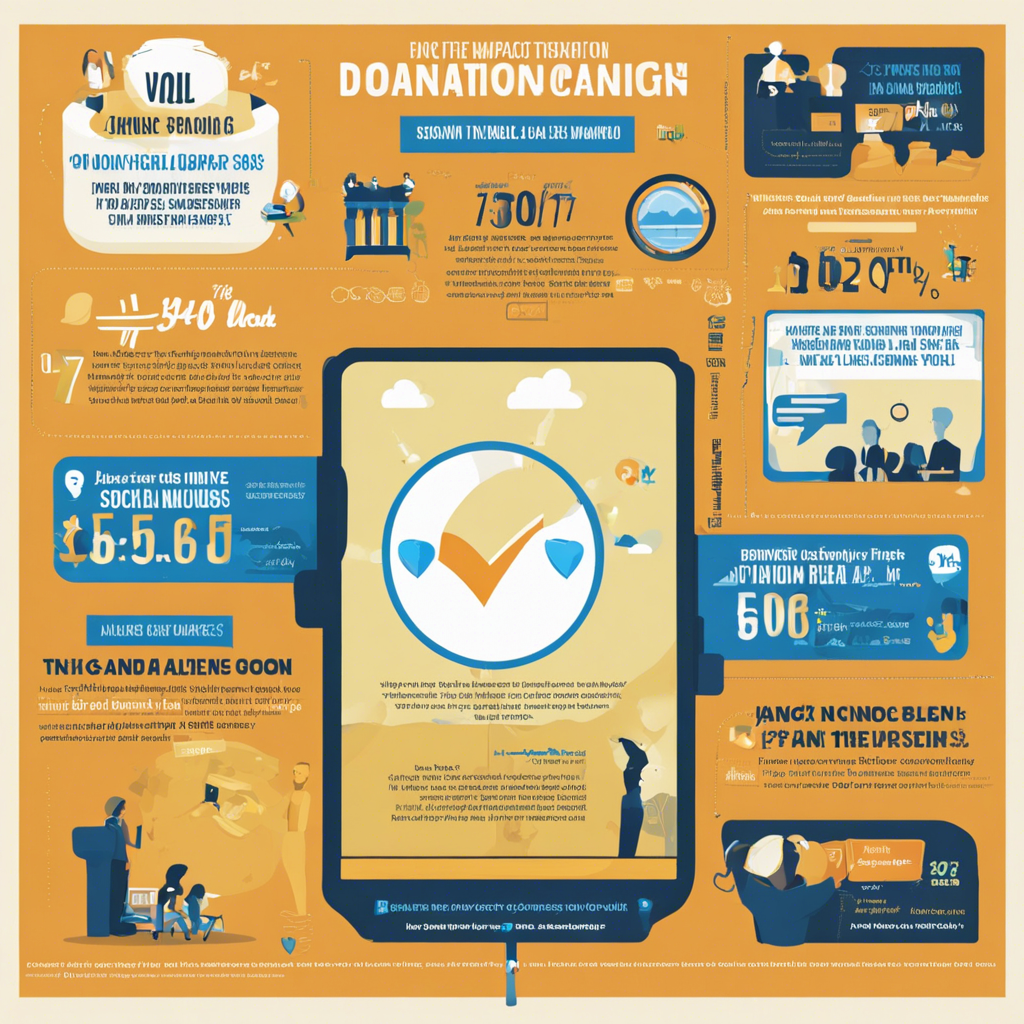The power of social media in driving successful donation campaigns and its impact on charitable giving.
Social media has revolutionized the way we connect, communicate, and share information. In recent years, its impact on fundraising and donation campaigns has been significant. With the rise of digital activism and online communities, social media platforms have become powerful tools for raising awareness, mobilizing support, and driving successful donation campaigns. This article explores the role of social media in the context of donation campaigns, examining its influence on charitable giving, the strategies employed by organizations, and the ethical considerations surrounding this digital phenomenon.
In today’s digital age, social media serves as a powerful catalyst for social change and charitable initiatives. Campaigns such as the ALS Ice Bucket Challenge and the #NoKidHungry movement have gone viral, capturing the attention of millions and generating unprecedented levels of support. This article delves into the mechanics of these campaigns, highlighting the unique advantages and challenges presented by social media platforms in the realm of fundraising.
The Rise of Digital Activism
Harnessing the Power of Social Media
Social media campaigns have the potential to reach a global audience instantly, transcending geographical boundaries and connecting like-minded individuals. Through the use of hashtags, shares, and viral content, organizations can create a sense of community and foster engagement. Websites like Twitter, Instagram, and Facebook have become powerful tools for disseminating information, sharing personal stories, and mobilizing support for various causes.
The Power of Storytelling
Storytelling is an essential aspect of successful donation campaigns. Social media platforms provide a space for individuals to share personal experiences and connect with others on a deeper level. When people can relate to a cause on a personal level, they are more likely to donate and engage in the campaign. For instance, the #MeToo movement raised awareness about sexual harassment and assault by encouraging survivors to share their stories, leading to widespread public dialogue and policy changes.
Building Communities and Networks
Social media allows organizations to build and nurture communities around their causes. These online communities facilitate dialogue, foster a sense of belonging, and encourage collective action. By creating dedicated groups or pages, organizations can provide a platform for supporters to engage, share ideas, and take action. For example, the Black Lives Matter movement has effectively utilized social media to organize protests, share resources, and build a global community advocating for racial justice.
Effective Strategies for Social Media Campaigns
Engaging Influencers and Celebrities
Collaborating with influencers and celebrities can significantly amplify a campaign’s reach. These individuals have a large following and can help raise awareness by sharing the campaign with their audience. For instance, the ALS Ice Bucket Challenge went viral in 2014 when prominent figures like Bill Gates and Oprah Winfrey participated, encouraging their followers to join the cause.
Utilizing Hashtags and Trending Topics
Hashtags are a powerful tool for connecting campaigns to a wider audience. Creating unique hashtags and promoting them across social media platforms can help raise awareness and encourage user engagement. By aligning campaigns with trending topics, organizations can leverage existing momentum and reach a broader audience.
Personalizing the Experience
Personalization is key to connecting with potential donors. Social media allows organizations to segment their audience and tailor content to individual interests and preferences. By utilizing targeted ads and personalized messaging, campaigns can establish a stronger connection with supporters and increase donation rates.
Ethical Considerations and Challenges
Privacy and Data Concerns
While social media provides numerous benefits for donation campaigns, there are also ethical considerations. Privacy and data protection are crucial aspects of responsible social media use. Organizations must ensure they handle user data securely and transparently, adhering to relevant regulations such as the General Data Protection Regulation (GDPR).
Authenticity and Trust
Maintaining authenticity and trust is essential for successful social media campaigns. Organizations should present themselves honestly, transparently, and consistently across platforms. Building trust with followers is vital for fostering long-term relationships and encouraging ongoing support.
Avoiding Clickbait and Misinformation
In the pursuit of engagement, campaigns should avoid clickbait tactics and misinformation. Social media platforms have been criticized for the spread of fake news and misleading content. Responsible campaigning involves fact-checking, transparent communication, and providing accurate information to maintain credibility.
External Links:
– The Ice Bucket Challenge, 4 Years Later: What It Accomplished And Where It Stands Now
– The #MeToo Movement, One Year Later: Where It Began and Where It’s Headed
– The Intersection Of Social Media And Charitable Giving
Q&A: Exploring Further
How do social media campaigns ensure their message reaches the right audience?
A targeted approach is crucial. Campaigns should utilize demographics, interests, and behavior data to segment their audience and deliver personalized content. Engaging with relevant influencers and partnering with niche communities can also help reach a more specific audience.
What are the potential risks of relying heavily on social media for donation campaigns?
Over-reliance on social media may lead to a lack of diversity in communication channels. Technical glitches, platform policy changes, or algorithm updates can significantly impact a campaign’s reach. Diversifying communication strategies and building an offline community can mitigate these risks.
How can organizations measure the success of their social media campaigns?
Measuring success goes beyond donation amounts. Key metrics include reach, engagement, conversion rates, and long-term donor retention. Organizations should track these metrics to evaluate campaign performance and adjust their strategies accordingly.
In conclusion, social media has become an indispensable tool for driving successful donation campaigns. It empowers organizations to connect with diverse audiences, foster engagement, and mobilize support on a global scale. By harnessing the power of storytelling, building communities, and employing effective strategies, campaigns can raise awareness, inspire action, and make a tangible impact on charitable giving. However, organizations must also navigate ethical considerations, privacy concerns, and the challenges of maintaining authenticity in the digital space. By understanding and addressing these issues, social media can continue to be a powerful catalyst for positive change and philanthropy.
